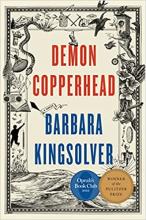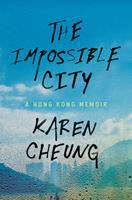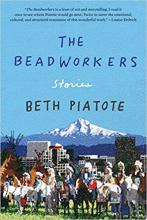Although Seattle has a time-honored habit of feigning otherwise until the weekend after Independence Day, summer is indeed upon us. And as ever-so-bookish Padelford Hall becomes more lightly tread for the season, the minds of English faculty wander … to reading. We are, after all, who we are – if we didn’t love reading as much as we do, we wouldn’t be English professors!
Summer reading of course is often a bit of a different species than the more erudite tomes of fall (and winter, and spring). Perhaps lighter and more “pleasure reading,” our faculty’s recommendations for summer-appropriate reads are still finely-crafted and impactful works of art. Enjoy!
Professor Jesse Oak Taylor recommends Barbara Kingsolver, Demon Copperhead: I absolutely loved Barbara Kingsolver's Demon Copperhead, an Appalachian retelling of Charles Dickens's David Copperfield. The book is a searing depiction of the opioid epidemic, the foster care system, rural poverty, and the detritus of the coal industry. It is also an intimate and humane portrait of a region too often reduced to stereotypes. Kingsolver attends to the ecology of the woods and hollows, and the cadences of their language. The result is a novel that looms up around you and seems more real than the world. Admittedly, I am a Victorianist from West Virginia. Thus (as our colleague Charles LaPorte pointed out), if this book has a target audience, I'm it. However, I'm also clearly not alone. It just won the Pulitzer. If you know Dickens, you will love the way Kingsolver reimagines his characters (Uriah Heep's equivalent retains all his ickiness), blending social commentary and storytelling in a truly Dickensian fashion. But if you don't, the book absolutely stands on its own. Thus, don't put off reading Demon Copperhead until you finally get around to David Copperfield. Trust me, it's OK. Dickens isn't going anywhere. Your Victorian literature professor from West Virginia said so.
Professor and Divisional Dean Brian Reed recommends Karen Cheung, The Impossible City: A Hong Kong Memoir and Louisa Lim Indelible City: Dispossession and Defiance in Hong Kong: I’ve just read two different but complementary and compelling memoirs that grapple with the 2019 protests in Hong Kong and their aftermath: Karen Cheung’s Impossible City and Louisa Lim’s Indelible City. Lim is invested in archaeology, history, and art-making – she keeps returning to the story of the King of Kowloon, an outsider graffiti artist – and she wants to disentangle British colonial, Chinese national, and Hong Kong oppositional narratives about the past. Cheung is a music journalist and zine editor whose story is about the day-to-day struggles, personal and political, of young creatives on the margins of a money-obsessed society.
Professor and Vice Provost Chadwick Allen recommends Beth Piatote, The Beadworkers for “a beautifully written collection of short stories anchored in contemporary Native cultures of the Pacific Northwest.” Provost Allen is expert in Native American, Maori, and Oceanic literatures and cultures, so his high recommendation comes from a place of experience. The Aspen Institute’s review agrees that Piatote’s new collection of stories is both compelling and important: “The Beadworkers is an inventive, mixed-genre debut collection that draws on Indigenous aesthetics and forms to offer a powerful vision of Native American life in contemporary America. Piatote’s stories span the past century, and some take place against the backdrop of the Fish Wars of the 1960s and 1890’s Wounded Knee. Inevitably, her work contends with the environment, violence, and justice.”


